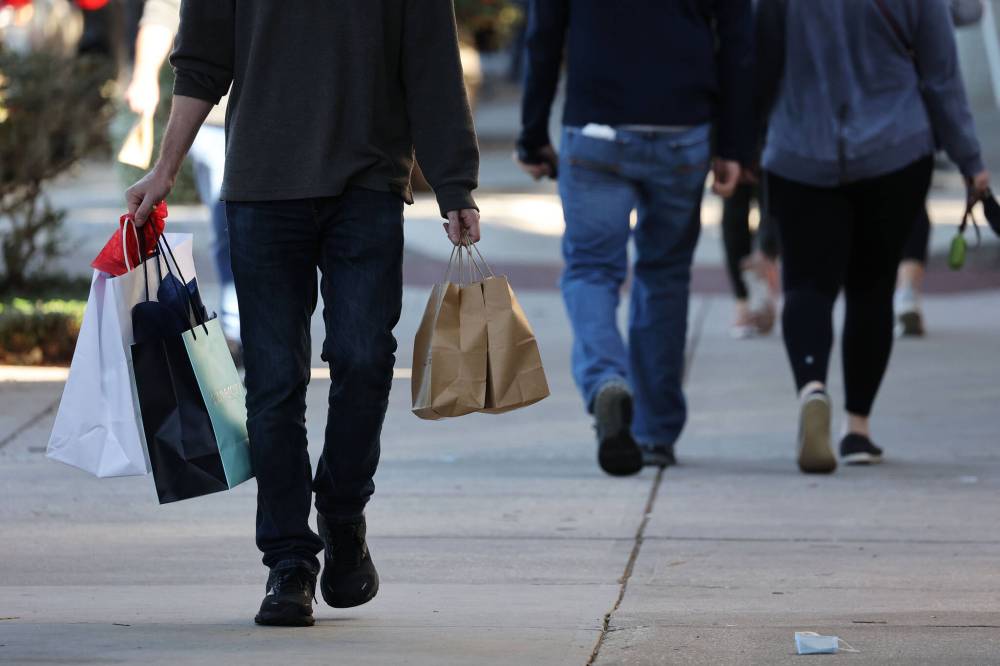
Once again, we are in the season of waiting that closes out every year. If you are currently Christian, or remember enough of the rhythms of your childhood, you would expect me to be talking about the liturgical season of Advent, which begins on the fourth Sunday before Christmas. Read this article for free: Already have an account? To continue reading, please subscribe: * Once again, we are in the season of waiting that closes out every year.
If you are currently Christian, or remember enough of the rhythms of your childhood, you would expect me to be talking about the liturgical season of Advent, which begins on the fourth Sunday before Christmas. Read unlimited articles for free today: Already have an account? Opinion Once again, we are in the season of waiting that closes out every year. If you are currently Christian, or remember enough of the rhythms of your childhood, you would expect me to be talking about the liturgical season of Advent, which begins on the fourth Sunday before Christmas.

Yet despite the strident language of white Christian nationalists in the United States, Christian culture is no longer dominant in North America. I recently started watching again, for the first time in years. The normally unflappable host, Ken Jennings, was visibly stunned by missed answers to obvious “Christian” questions from expert contestants who breezily recite random presidential facts.
Thus, for many people, that “season of waiting” has instead become the period between Black Friday and Boxing Day. It is a time spent recovering from one spending orgy and preparing for the next, as we buy things we really don’t need with money we really don’t have. Tribune News Service Have we taken a wrong turn in both ramping up consumption and weighing everything by its economic value? So, this makes me wonder about our values these days, as individuals and as a society.
Mark Carney, the former governor of both the Bank of Canada and the Bank of England, had a similar concern. His massive (2021) tackled the problem that our “market economy” had morphed into a “market society,” making everything that mattered into a value proposition that was weighed, measured and managed in terms of its immediate economic costs. He ominously proclaimed that “value in the market is increasingly determining the values of society,” something that will lead to a bleak future, especially for next generations, and he said this had to change.
Why Carney thought that a 600-page brickbat would transform financial institutions, when his work from the inside did not, is puzzling. Nor are his insights particularly insightful. I suppose there is some novelty in having a leader in the banking world conclude what many thousands of others have said, for decades, but I don’t think any major change will result.
The basic flaw in his thinking is revealed in the subtitle and book cover: a picture of scaffolding erected around the Earth, accompanied by the phrase “building a better world for all.” You might build a bridge — or a bank. You might even build a better bridge or a better bank, but not a better world, or a better society.
Societies grow, or are healed. They are not “built.” Missing this obvious point is precisely the problem with his analysis of both our personal and social values.
So, I need to explain where he went wrong, and why it matters today in this not-Advent season. When we are thinking, we make our decisions (or our choices) for reasons. Those reasons reflect what we think is important, or, in other words, what our values might be in that situation.
Our values lead to our reasons for the choices we make, every day of the year. As long as our brains are working at more than an instinctive level, our values drive the decision-making bus. Carney correctly questions the current source of those values, and why thinking only about money is not going to get us out of the mess we are in.
Yet he should have asked where our values come from. Ask a religious person, and — whatever religion — you will get some kind of an answer. It might be garbled, misconstrued or incomplete, but there will be a clear intention to associate the values behind their decisions with the values of their religious tradition.
Thus, while those white Christian nationalists in the U.S. have a totally distorted view of Christianity, its values and its expectations for the behaviour of believers, at least you can engage them in conversation about where they have gone wrong.
But what do you say to someone whose values come entirely from consumer culture, in which more and new is always better than old and less? Where “reduce, reuse, recycle” are blasphemies against the BOGO god, who commands you to throw stuff away and buy even more, every day? Where it is “all about me,” and no one else — especially future generations — matters at all? Not much, because their values are generated by the latest advertising spins, not by thought or any religious beliefs. You literally have nothing to talk about, because their brains have been hijacked (and numbed) by consumer culture that cares nothing about what really matters. Winnipeg Jets Game Days On Winnipeg Jets game days, hockey writers Mike McIntyre and Ken Wiebe send news, notes and quotes from the morning skate, as well as injury updates and lineup decisions.
Arrives a few hours prior to puck drop. Look at your own choices this year. Figure out the “reason for the season” in your own life.
If those choices don’t reflect care for other people, why should anyone else care about you? Forget just buying more stuff: What are you doing to help heal other people and our society? To ensure there is a healthy Earth for your children and grandchildren? All the lonely people — they come from believing things are more important than relationships, that my today matters more than your tomorrow. Every religion will tell you that is wrong. Peter Denton waits for Christmas from his home in rural Manitoba.
Advertisement Advertisement.











